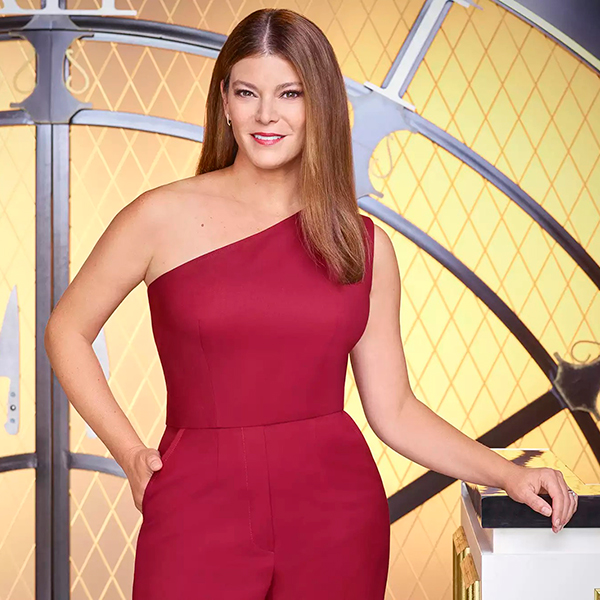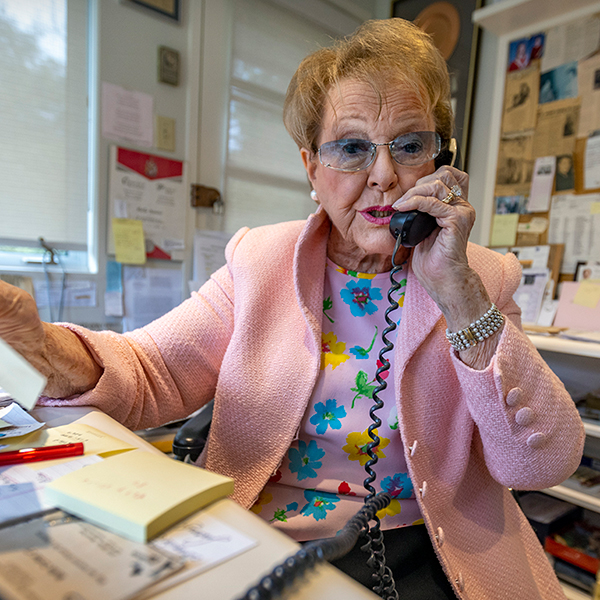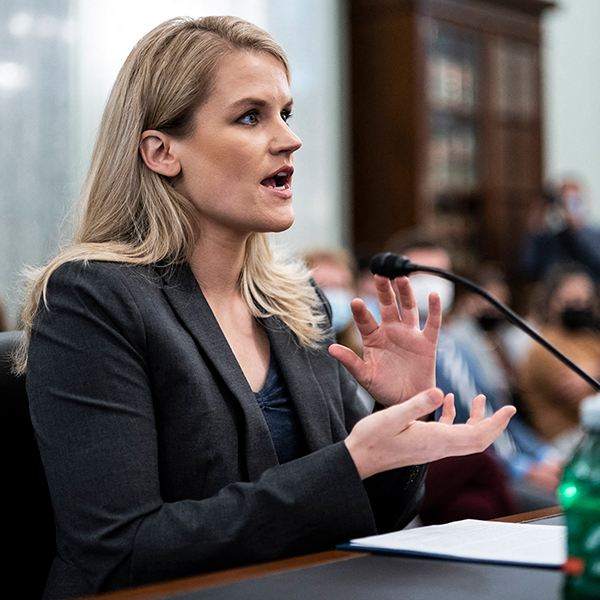It isn’t really accurate to say that Heather O’Neill, BA’94, emerged out of nowhere when her debut novel Lullabies for Little Criminals unexpectedly won CBC’s Canada Reads competition in 2007.
One of her short stories had already been adapted into a movie by Canadian filmmaker John L’Ecuyer, after all, and she was a contributor to the popular public radio show This American Life.
Still, it is fair to say that her life hasn’t been the same since that fateful Canada Reads win. The victory instantly transformed her into a best-selling author and, to her amazement, the subject of profiles in People and other magazines.
“It really threw me,” she says of the book’s success (it would go on to be a finalist for both a Governor General’s Literary Award and the international Orange Prize for Fiction). “It changed my life in so many radical ways that it was very shocking to me. And I was so worried that somehow it would all be taken away. I had confidence in that book, but I didn’t have confidence in myself yet.”
Fast forward 15 years, and O’Neill is now firmly entrenched as one of CanLit’s heavy hitters. She has been a finalist for the Giller Prize twice. Several of her works have been optioned for film or television.
O’Neill has a knack for tackling dark subject matter with a deceptively light touch. She chronicles the lives of people who live on society’s margins with sensitivity and clear-eyed empathy. Her stories offer unexpected twists and turns. And her inventive playfulness with words is a consistent treat.
“It’s hard to think of another contemporary writer whose deployment of language provides as much sheer enjoyment per page,” noted Ian McGillis in a Montreal Gazette story about O’Neill’s most recent book, When We Lost Our Heads.
Both heroes and villains
The novel, a fixture on Canadian bestseller lists since it arrived in bookstores earlier this year, is set in Montreal like most of O’Neill’s work. The action takes place during the Victorian era, and it focuses on a pair of tremendously gifted and deeply narcissistic young women, Marie and Sadie. “They’re sort of the heroes of the book, but they’re also the villains of the book,” says O’Neill.
The societal forces the two have to contend with seek to stymie their natural talents and limit their ambitions (one of them faces the very real threat of imprisonment in an asylum). But the pair are so self-centred, they are either blind or indifferent to the damage that they, in turn, inflict on others’ lives.
“It was a time period when what it meant to be a woman was so controlled and confining,” says O’Neill. “One of the original inspirations for the book was just looking at images of women in their undergarments [in that period] getting dressed and it just struck me that when they put their crinolines on, they were just literally in cages.
“I had this idea of these women and their ambitions and desires during a time where the only point of being a woman was to become a wife and mother. And [my main characters] had no desire whatsoever in getting married and having that kind of life. They reject these things that they were told they should strive for. They wanted other things. They wanted to be writers and revolutionaries and artists.”
O’Neill had originally intended for Mary Robespierre, a factory worker determined to build a better life for herself through her spectacular talent for baking, to be the book’s central character, but Marie and Sadie gradually took on the most dominant roles as O’Neill fleshed them out.
“They are such ruthlessly ambitious weirdos, they kind of took over,” she says. “They were just so enraptured with one another. Their relationship and the way that they bring out the best and the worst in each other, it became the centre of the book.”
Critics have embraced When We Lost Our Heads. “A twisted, perverse story that’s difficult to put down,” says BuzzFeed. Maclean’s describes the book as “viciously funny and acutely intelligent.”
The love of her life
O’Neill has been filling notebooks and journals with her writing since she was very young. During an online McGill alumni event earlier this year, she joked about how that had been a source of tension in some of her romantic relationships. Jealous boyfriends, who thought O’Neill should be more focused on them and less focused on her notebooks, would throw them away or hide them.
“Especially when I was in my twenties, it was an issue,” says O’Neill. “I was always having fights with boyfriends over it. Now, when I’m in a relationship, [my partner] has to accept that writing is truly the love of my life. I love writing more than I could love a partner. It’s just been there for me ever since I was a child.
“I grew up in such a neglectful and not encouraging environment that writing became, in a way, my family. It was the one place I could go where my ideas were important, where I was capable of creating other worlds that had some sort of beauty, because I always felt I lived in the middle of ugliness. Everyone [around me] just thought my thoughts were worthless. So, yeah, nobody can compete with that.”
O’Neill has written often and openly about her childhood. Her parents separated when she was five. In Wisdom in Nonsense, a short book about living with her father as a child, O’Neill writes that she spent the two-and-a-half years after her parents’ divorce with her mother until “she told me she had changed her mind about wanting to be my mother.” O’Neill was sent to Montreal to stay with her dad.
Her father, who worked as a janitor, had little money and many of the items in their apartment had been rescued from the trash. He had been a petty criminal in his youth, once incarcerated for a year. He occasionally treated his daughter to expensive cheeses he had shoplifted.
O’Neill shares some funny and touching stories about what it was like to have him as a dad in Wisdom in Nonsense, but at one point she abruptly interrupts that narrative to make it clear that he could also be volatile and abusive and was not an easy man to live with. “In the interest of journalistic integrity, I thought I’d put that out there.”
“If you look through history, authors often have these remarkably squalid childhoods,” O’Neill says. “I think it essentially makes you an outsider as a child and a really keen observer of the world because you’re trying to understand why you don’t fit in.
“My teachers saw me as this scruffy, neglected kid, and I saw myself as a poet,” says O’Neill. If she wasn’t so easy for others to categorize or sum up, she realized that no one else was either. “Growing up, everyone around me was, in some sort of way, cast off from society. I saw them as fully realized human beings with their own perspectives. They were just somehow born on the wrong side of something.”
“It was like discovering rock and roll”
O’Neill didn’t share many details about herself with her classmates when she began her undergraduate studies at McGill.
“When I went to McGill, I didn’t speak about my childhood. I didn’t let anyone know the background I had come from,” says O’Neill. “You realize you’ve been on a different playing field than these other people, these students who came from educated families. There were things you just didn’t know that the other [students did], like how to act at a dinner party. I felt like I was pronouncing everything wrong. You just didn’t have the same confidence that everybody else had.”
O’Neill did her best to blend in. And, soon enough, she began to take delight in her studies.
“I realized how comfortable I was in the world of books when I was at McGill. I realized that there were so many things that you could do with words, and it was all so exciting to me. Discovering authors like Jean Genet and seeing how subversive literature could be, it was like discovering rock and roll. I started to think seriously about what I wanted my own writing to look like.
“I loved the university experience. It was such a time of intellectual play. There were so many brilliant students in the English lit [program], and I just loved sitting around with other students in cafes, discussing our papers and ideas.”
If McGill played an important role in her formation as a writer, so did her earlier schooling, which was largely in French. While her Anglo peers were reading books by Richler or Atwood for their school assignments, she was reading works by French Quebec authors.
“I read so much Quebec literature when I was young, and I loved it. I think Quebec literature can be more experimental, there’s a magical realism [quality] to some of it, a wildness in the techniques. There is also a lot of anger in the books that I read by authors like Marie-Claire Blais and Anne Hébert, the enraged young woman. I just adored that. It comes into my work a lot.”
After graduating from McGill, O’Neill became involved in the spoken word scene that was popular in Montreal in the nineties, reading her short stories to audiences in cafes and bars.
“It was like going to a creative writing workshop with incredibly harsh critics,” she says with a laugh. “If [the audience] was bored, you could tell. I had to develop a writing style that would engage them and make them pay attention to me. I learned how to put humour into really dark scenarios, and I saw how it made [audiences] more receptive to anything dark that I was exploring. It was there that I really developed that technique.
“The audience would always go bananas whenever I talked about anything autobiographical,” she adds. “They would laugh their heads off or be touched, and I thought, oh, okay, that’s a direction I can go in. That made me open up about my life and who I actually was. And it affected what I was writing about and what my central themes were.”


